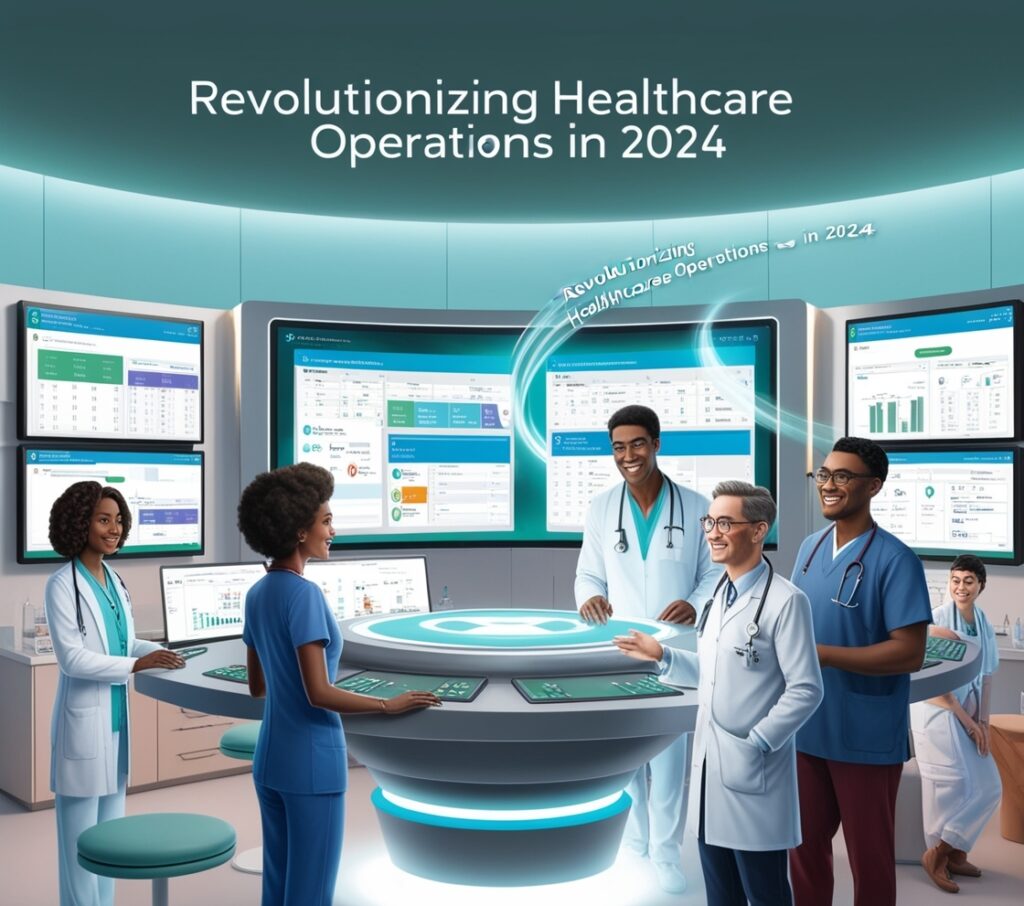In 2024, healthcare is undergoing a significant transformation, primarily due to advanced hospital management software. This technology is not just a trend; it’s essential for improving patient care and optimizing operations. With the rise of healthcare automation and digital healthcare systems, these tools are reshaping how hospitals function.

Why Hospital Management Software Matters in 2024
Modern healthcare is complex and demands efficient systems to manage everything from patient records to staff schedules. Here are some key reasons driving the need for hospital management software in 2024:
- Increased Patient Volume: Growing populations and an aging demographic mean healthcare providers are handling more patients than ever.
- Rising Operational Costs: Hospitals must find ways to reduce costs while ensuring high-quality care.
- Regulatory Compliance: Navigating healthcare regulations requires sophisticated systems to avoid penalties.
- Patient Expectations: Patients today want seamless services, from scheduling appointments to managing bills.
Key Benefits of Hospital Management Software
1. Enhanced Efficiency
- Streamlined Processes: Automation reduces administrative burdens, turning hours of work into minutes.
- Effective Scheduling: Smart systems help allocate resources efficiently, maximizing staff productivity.
2. Improved Patient Care
- Comprehensive Access to Records: Integrated patient histories lead to better diagnoses and treatment plans.
- Faster Emergency Response: Quick access to vital information can save lives in critical situations.
3. Data-Driven Decisions
- Performance Metrics: Analytics tools help administrators identify areas for improvement.
- Predictive Insights: Anticipating patient needs allows for better resource management.
4. Simplified Billing
- Integrated Billing Systems: These reduce errors and speed up payment cycles, improving cash flow.
- Transparent Processes: Clear billing leads to greater patient satisfaction and trust.
5. Enhanced Communication
- Team Coordination: Effective software improves communication among healthcare teams.
- Patient Engagement: Direct communication tools keep patients informed with updates and reminders.
6. Remote Access Capabilities
- Flexibility for Providers: Healthcare professionals can access patient data from anywhere.
- Telehealth Integrations: Remote care options expand services to patients in distant areas.
The Impact of Healthcare Automation
Healthcare automation is transforming the industry by reducing manual labor and enhancing efficiency. Here’s how:
- Automated Scheduling: Systems handle bookings and confirmations, leading to fewer no-shows.
- Smart Inventory Management: Software tracks supplies and alerts staff when stocks are low.
- Real-Time Patient Monitoring: IoT devices provide crucial data to healthcare teams for better patient care.
Transforming Hospital Workflow
The introduction of advanced hospital management software is reshaping hospital workflow. Key elements include:
- Centralized Information Hub: A single platform for all patient and administrative data improves organization.
- Task Automation: Routine tasks like registration are automated, freeing staff for more complex duties.
- Interoperability: Modern systems communicate with other digital healthcare systems for better data sharing.
Expert Insight
Dr. Emily Chang, a healthcare technology consultant, emphasizes the importance of this technology: “The integration of hospital management software in 2024 is not just about efficiency; it’s about redefining the patient experience. By leveraging technology, we can provide more personalized, timely, and effective care, ultimately saving lives and improving outcomes.”
Future Trends in Hospital Management Software
Looking ahead, several trends are shaping the future of hospital management software:
- AI Integration: Artificial intelligence will enhance predictive analytics and personalized care.
- Blockchain Technology: This will improve security and transparency in patient records.
- Patient-Centric Features: More software will focus on enhancing the patient experience through mobile apps and health tracking.
- Cloud Solutions: Cloud technology will improve data sharing and collaboration among healthcare providers.
Conclusion
The evolution of hospital management software in 2024 marks a significant shift in healthcare operations. By automating workflows and adopting digital healthcare systems, hospitals can improve efficiency and elevate patient care. As the industry evolves, embracing these technologies will be crucial for healthcare providers looking to thrive in a competitive environment.
In today’s digital age, the question is not whether to adopt hospital management software, but how quickly organizations can implement these systems to meet the needs of patients effectively. The future of healthcare is here, and it’s powered by innovative technology.
